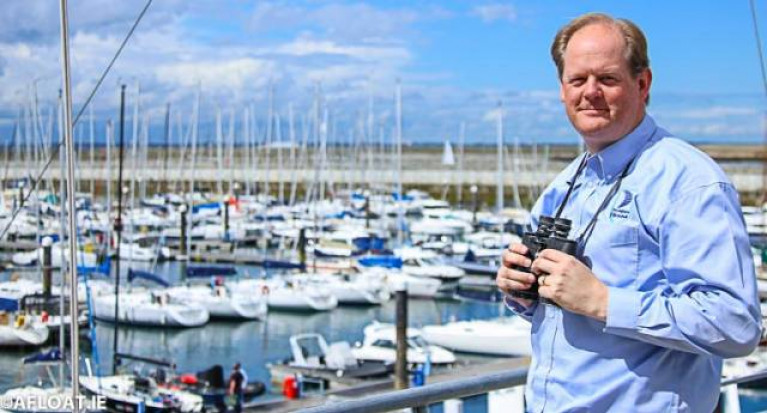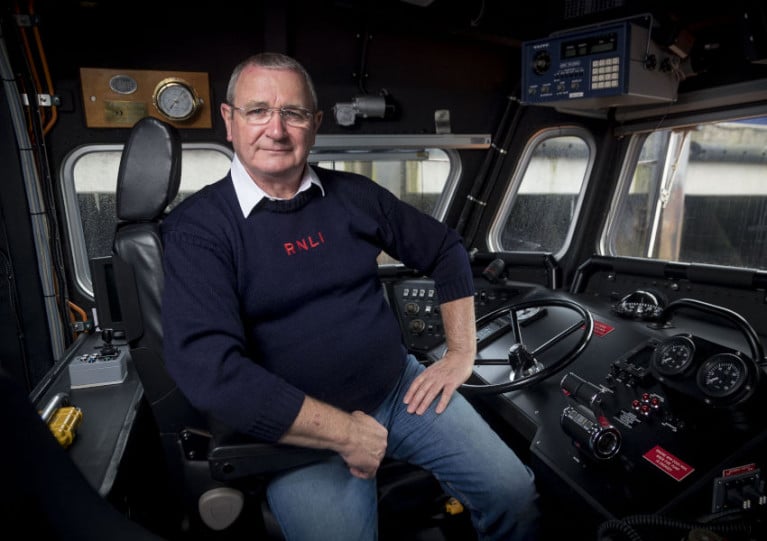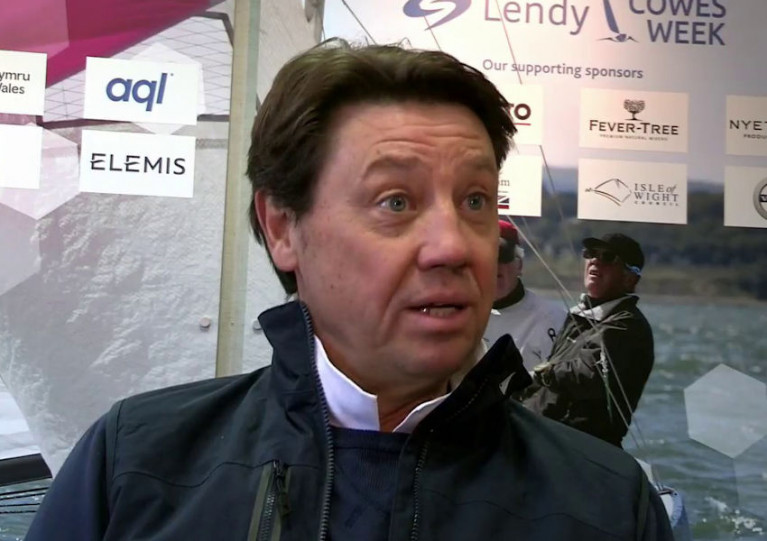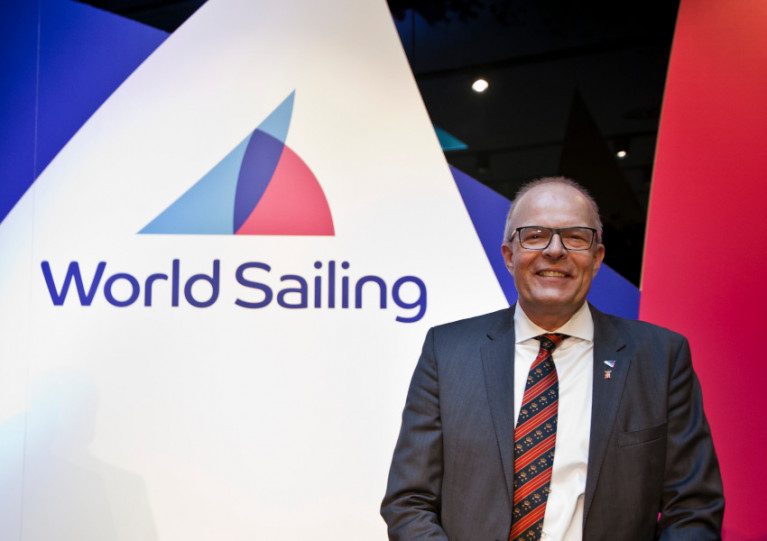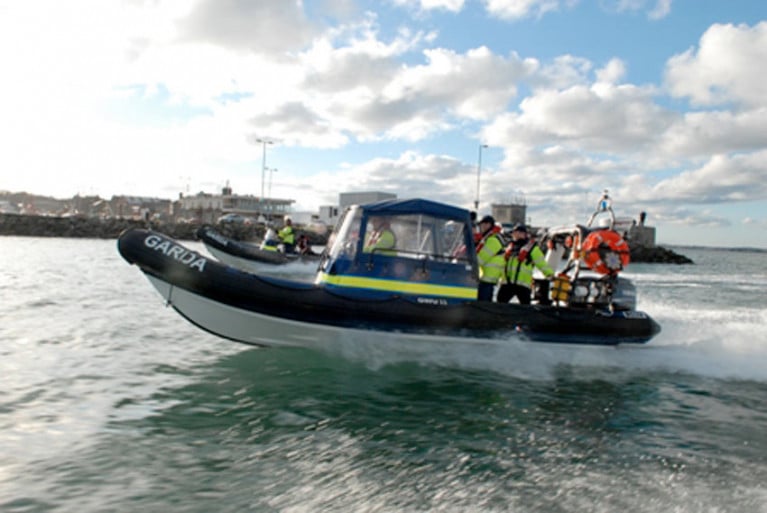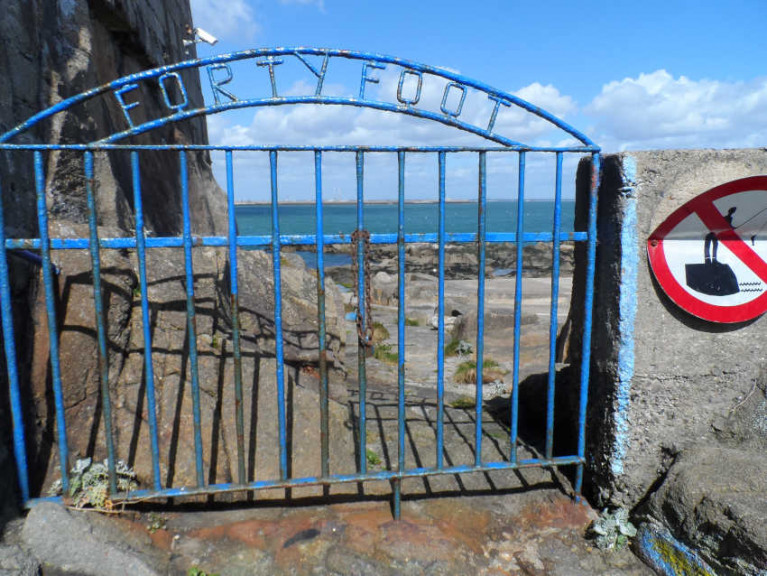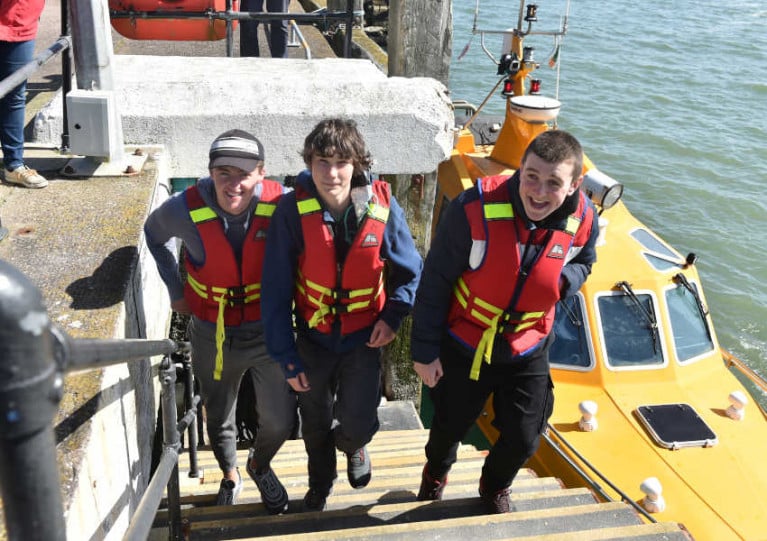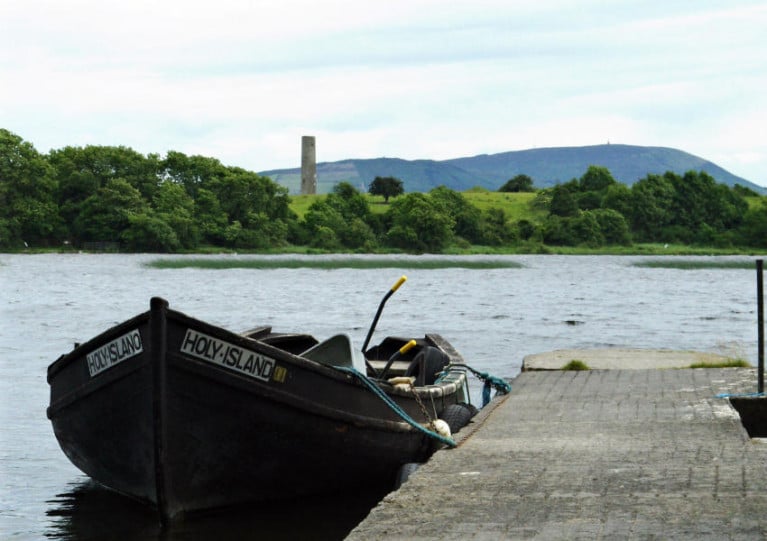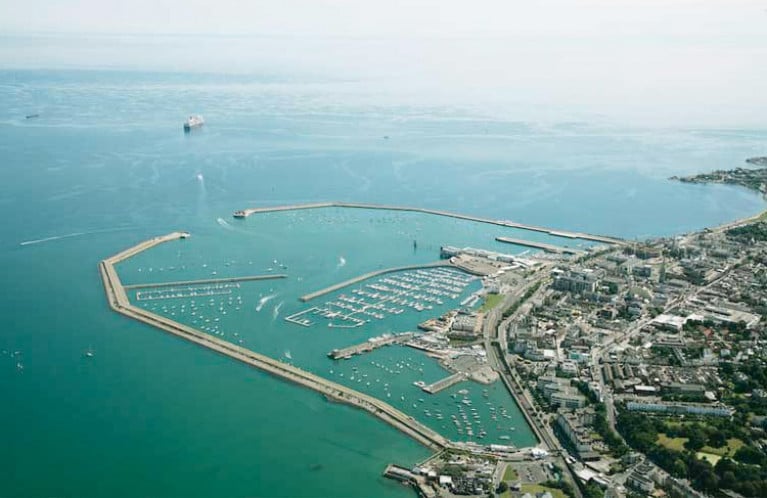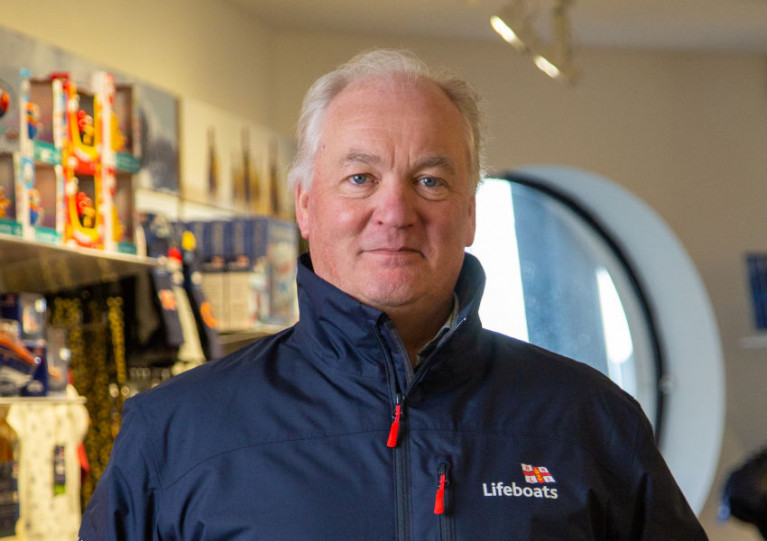Displaying items by tag: Coronavirus
Call For Government To Consider Marine Sector’s Small Traders In Any Easing Of Covid-19 Restrictions
The Irish Marine Federation (IMF) has called on the Government to consider easing some restrictions currently imposed on the marine sector amid the Covid-19 pandemic response.
In an letter to Brendan Griffin TD, Minister of State for Tourism and Sport, as seen by Afloat.ie, IMF chairman Paal Janson suggests “some responsible steps” to allow small businesses within the sector to resume limited trading “in light of the considerations now being given” to a gradual easing of movement restrictions.
These steps would allow for the pick-up of a boat or boat equipment from a dealer, broker or seller “as it is considered a reasonable justification under obtaining goods and services”.
They would also allow a boat-owner to access their vessel at a marina or mooring “to male sure it is safe and compliant”, or to take their vessel to a marina or boat shed for repairs or servicing (or likewise return it to its mooring it after same).
“In addition, we would suggest that once recreational activities are once again permissible, boating is one of the more responsible and acceptable forms of enjoying the outdoors,” Janson says, provided boaters stick to the following:
- Only boat with those already in your immediate household. No guests on your boat.
- Go right from your house to the boat and back, no unnecessary contact with anyone or any loitering at the marina/dock.
- Maintain your distance at the fuel dock and when purchasing provisions.
- No rafting up, keep your distance when out on the water.
- Wash your hands any time there is contact with shared surfaces.
- Be safe and responsible, do nothing that would require the assistance of the rescue services.
“The Irish Marine Federation is committed to ensuring that the safety of its members and customers alike is of overarching importance and hopes to be able to work with the relevant Government authorities to see a gradual return to a safe and responsible recreational activity,” Janson adds.
Aberdeen RNLI has urged surfers to stay ashore during the Covid-19 pandemic to “protect emergency services and save lives”.
The call came after the volunteer crew of the station in north-east Scotland were forced to break self-isolation and launch their inshore lifeboat yesterday (Tuesday 14 April) following reports of a surfer in difficulty at a local beach.
The crew of three mustered quickly and launched the D-class lifeboat Buoy Woody 85N shortly after 3.30pm and reached the scene around 15 minutes later.
The surfer had been reportedly having difficulty getting back on his board and swimming ashore.
However, by the time the lifeboat arrived, the surfer was on his board and in no immediate danger. After speaking with the lifeboat crew, the surfer made his own way ashore.
Bill Deans MBE, operations manager at Aberdeen lifeboat station, said he was disappointed his crew had to expose themselves to risk in this way.
“Like most people, our volunteer lifeboat crew members are self-isolating at home in line with [UK] Government guidelines – mostly doing their day jobs remotely.
“But they are always willing to set aside their own concerns to respond if the call comes that someone is in danger at sea.
“There is no way a lifeboat crew of three can maintain two-metre separation aboard a five-metre long lifeboat – and if they had required to pull someone from the water, the infection concerns are obvious to all.”
Deans added: “I have every sympathy with people who would like to use their daily exercise period to swim, sail, surf or whatever — but on behalf of every lifeboat crew member in the UK and Ireland, I have to appeal to them not to put our crews at indirect risk by going into or onto the sea.
“Stay safe ashore, protect the emergency services and save lives.”
Cowes Week Still On Schedule For August Regatta
Cowes Week organisers say they are continuing to work from home on all aspects of this year’s event which is still scheduled to take place from 8-15 August.
Regatta director Laurence Mead said: “We continue to move forward with plans for the event and remain hopeful that by the time we get to mid-August – still four months’ away - the necessity to socially distance ourselves will have reduced sufficiently so that we can run some great boat racing in Cowes.
“We can react quickly to changes in the [UK] Government restrictions and guidance, switching on or off various components with the minimum of lead time, and allowing us significant leeway – perhaps until the beginning of July - before we need to make any big decisions.”
Mead added: “The safety of participants and the hundreds of volunteers working behind the scenes is foremost in our minds, of course, but providing that we can run an event that complies with all guidance in place at the time, then we fully intend to do so.
“I suspect there will be a lot of sailors desperate to get boats on the water by August!”
The Notice of Regatta is set to be issues in the coming days on the Cowes Week website.
World Sailing president Kim Andersen has announced the immediate furloughing of almost all World Sailing staff for at least three weeks “to ensure the long-term financial viability” of the organisation.
In addition, higher paid staff are being requested to take a 20% pay cut until the end of the year.
In a statement released yesterday evening (Tuesday 14 April), Andersen confirmed that the board of World Sailing — whose staff are employed through a UK-based company — is taking advantage of financial supports made available by the UK Government to support salary costs during the Covid-19 pandemic.
From today, Wednesday 15 April, until Wednesday 6 May, almost all staff are on “furlough leave” and will not be permitted to engage in any work for World Sailing. Up to 80% of their salaries will be funded by the UK Government, with the difference covered by World Sailing.
“After 6 May, the board will review the position with the senior management team and decide whether furlough leave is extended or whether staff will return to work,” Andersen said.
“I must emphasise to all World Sailing Members, volunteers and stakeholders that it is a legal condition that staff cannot work for World Sailing whilst on furlough leave.
“Therefore, no emails, calls or correspondence will be responded to from the staff and nor should you expect any reply.
“I understand this will be difficult for a number of areas of World Sailing, but we must respect the conditions of this scheme.”
Andersen confirmed that a small number of senior managers will not be on furlough and will be on hand to respond to genuinely urgent matters.
In addition, Andersen said, the World Sailing board “has requested that World Sailing staff earning more than a certain amount take a 20% pay reduction until the end of the year (or earlier if possible)”.
“This requires the individual agreement of the staff and we have been consulting with the staff on the viability of this proposal,” he said.
Anderson added: “Overall, the board continues to have frequent discussions with our partners concerning the impact of the postponement of the Olympic Games in order to ensure our financial health is as stable as possible.”
Over the weekend, Andersen responded to media criticism over reports of financial difficulties within World Sailing arising from the 12-month postponement of the Tokyo 2020 Olympic Games.
Lough Derg Off Limits As Gardaí Patrol Waters
Gardaí exercised their emergency powers this past Thursday (9 April) on Lough Derg, warning cruisers, motor boats and anglers alike to stay at home, as the Clare Echo reports.
Terryglass Angling & Conservation Club informed its members on Thursday afternoon that the Garda was patrolling the lough with a fast RIB to enforce the Covid-19 restrictions “so no getting away”.
Under Operation Fanacht, which has been extended from this Easter weekend to Tuesday 5 May, gardaí have the power to detain anyone found in breach of movement measures — which include travel beyond a 2km radius of one’s home being restricted to essential reasons.
Grocery shopping is considered one such essential purpose. However, it is understood by the Clare Echo that gardaí were turning back traffic in the Shannon area and telling drivers there were options closer to home.
The Clare Echo has more on the story HERE.
Forty Foot & Other Dublin Bay Bathing Spots Closed To Public Over Social Distancing Concerns
Popular bathing spots at the Forty Foot, Sandycove and Seapoint on Dublin Bay have been closed as of today (Saturday 11 April) following the latest extension of restrictions against Covid-19.
Dun Laoghaire-Rathdown County Council said the decision was made “following consultation [with] the Garda, as a result of concerns raised with social distancing compliance”.
All three bathing areas are now closed to the public until further notice, following the announcement that movement restrictions amid the Covid-19 pandemic have been extended to Tuesday 5 May.
It follows a nationwide call on Thursday by the Coastguard and the RNLI asking people not to use the sea for exercise or recreation.
‘Tenacious’ Teens Disembark At Cobh In A Changed World
A group of Transition Year students stepped into a strange new world when they disembarked from a month at sea on a tall ship sail training voyage.
The eight teenagers arrived in Cork Harbour on Tuesday 7 April on the SV Tenacious, which had sailed since early March from the Caribbean to the Mediterranean — with little knowledge of how daily life has changed in Ireland in the intervening weeks.
As Antonia O’Rourke of Viking Marine tells Afloat.ie, all the boys on the mixed-ability voyage with the Jubilee Sailing Trust have previous sailing connections.
Conor Galligan and Conor Walsh, for instance, both enjoy racing Lasers in Dun Laoghaire and Cork respectively, and are also qualified dinghy instructors hoping to put that training into practice this summer.
Charlie Kavanagh and Aiden Colbert are no strangers to sailing, either — the latter with cruising experience, while the former has sailed with his family.
Perhaps the best equipped was Sam Duncan, of the National Yacht Club, who joined a tall ship voyage last year with another charity — the Rona Sailing Project — which he enjoyed so much he was looking to expand his offshore miles while also qualifying as a dinghy instructor this season.
But while their prior experience on the water set them in good stead for a month on the high seas — honing essential seafaring skills along with 40 other crew — nothing could prepare them for what awaited as they landed in Cobh this week.
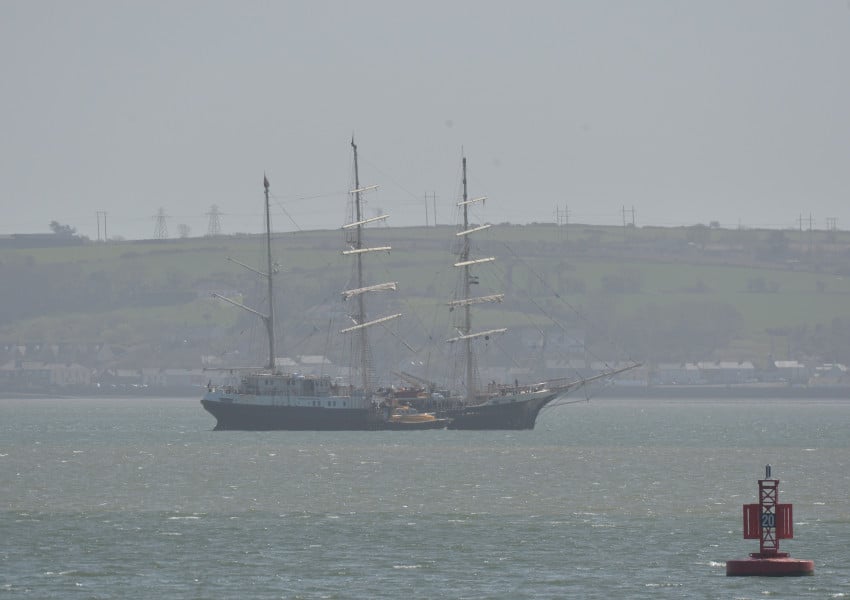 The SV Tenacious at anchor in Cork Harbour on Tuesday
The SV Tenacious at anchor in Cork Harbour on Tuesday
Concerns started to brew just days into their voyage as the scheduled host port in Greece was closed to visiting boats under strict measures against Covid-19.
Parents of the young crew, two of whom have underlying health conditions, were relieved by Jubilee Sailing Trust’s immediate decision to return to the UK, via the Azores and Cork Harbour — with no shore leave granted for the safety of the crew, who were essentially coccooned from the pandemic throughout.
The last leg of that journey, traversing the North Atlantic from the Azores to Ireland, presented a genuine challenge to the young sailors, with three days of gale-force winds to contend with.
But a different challenge faced them on arrival in Cork in Tuesday, when the eight Irish crew were said to be taken aback by the ‘new normal’ of social distancing and the shutdown of the economy.
Robbie Byrne from Greystones said: “It was a big shock coming back to Ireland today and seeing people wearing masks and everyone being told keep their distance and of course driving home, the roads were empty, there was no one out.”
The Irish Times has much more on the story HERE.
Waterways Ireland’s message to all users of Ireland’s inland waterways this Easter weekend is to “please stay at home”.
In a statement, the cross-border body for Ireland’s inland navigations said: “We are aware that Easter is normally a time that our boating community look forward to the start of the new season, when colleagues meet up, and plan many excursions for the year ahead.
“During the Covid-19 crisis such interactions will not be possible. Our navigations have been effectively closed since 30 March in order to comply with Government guidelines.
“Operational staff, water patrollers and lock-keepers are not available to undertake lock operations on any of our navigable waterways.
“We are continuing to undertake essential management of water levels, and any emergency works that may arise, under strict social distancing protocols. We ask all our boaters to continue to observe the regulations.
Waterways Ireland reminds users of its navigations that:
- Boating activity on the water is suspended until further notice;
- Travel in excess of 2km to check on vessels moored on the navigation is prohibited until further notice;
- Winter mooring facilities have been extended until 30 April in order to ease the pressure on our boating community.
- Boaters do not need to travel to move their vessel;
- Electricity and water services have been reconnected following completion of assessments of health and safety issues in the aftermath of the recent flooding;
- Normal pump-out facilities are available for boaters. Owners must ensure that travel to pump-out facilities must be undertaken in a responsible manner, minimising the amount of essential movement out on the water;
- Canoeing, kayaking, or any paddling activities on the navigable waterways is suspended until further notice;
- Fishing is suspended on our waterways until further notice;
- Open-water swimming is suspended in our waterways until further notice; and
- All Waterways Ireland service blocks are closed in accordance with Government guidelines.
Towpaths remain open and accessible for local exercise, but Waterways Ireland asks the public to limit their use, and only use towpaths which are in close vicinity (within 2km) of your home. It also calls on people to:
- Observe social distancing protocols - keep a distance of at least 2m (6 feet) away from other people;
- Use the towpaths for brief physical exercise only;
- Limit use – do not take part in physical activity on towpaths which have the potential for large numbers, where social distancing cannot be observed comfortably;
- Don't meet up with other groups;
- Stay in your family household group;
- Stay local to your home (within 2km);
- As towpaths in some places can be narrow, when you pass someone, please make sure you use the full width of the towpath, keep moving, and stand aside to allow others to pass, in single file, when necessary;
- If you can't avoid passing a moored boat please keep as far away from it as possible and pass quickly by;
- Be mindful of others and act always with consideration and with respect; and
- Observe all health etiquettes when on the towpaths.
“We are aware that restriction of services and facilities impacts on the ability of users to enjoy our wonderful waterways,” the organisation says.
“All measures are being taken to support the national effort in keeping people safe, protecting our staff, colleagues, partners and everyone who visits, or lives on and around our canals and river navigations.
“We will continually review such measures in light of direction and advice from Government and health professionals and any decisions on service provision will be communicated.”
It added: “We ask all our stakeholders, families and colleagues to continue to be safe during the crisis. Please look after each other and enjoy the Easter break at home.”
The Irish Marine Federation (IMF) has joined a call by European boating industry associations for support from the EU to address the Covid-19 outbreak and its profound effects on the sector.
Eighteen associations have signed a policy paper from the European Boating Industry (EBI) which outlines a series of suggested responses “to ensure that companies survive the crisis and can secure jobs” — jobs which, it says, number some 280,000 in 32,000 companies across the EU.
These responses include the introduction of a voucher scheme for tourism activities, open borders for goods and deliveries, as well as a risk-based approach to restarting marinas, production and tourism in anticipation of the summer season.
EBI also calls for “strong communication from the European Commission and national governments to inspire consumer confidence in the safety and attractiveness of maritime tourism”.
Regarding the local situation in Ireland, the IMF says it has opened channels of communication with the HSE with relation to the marine sphere “and the many issues that exist within our industry”.
Information on business supports is available from the Government and from Fáilte Ireland, the federation advices.
And following its call for marine industry staff to be recognised as essential workers, the federation refers to its response from the office of Business Minister Heather Humphreys with a guidance list of services deemed essential.
The IMF recommends that any specific queries in relation to Covid-19 and measures to mitigate its impact on the maritime transport sector should be sent to [email protected]
“I think it is fair today that the business situation is foremost in all our minds and what we can do to continue trading, in whatever capacity, to keep the light on over the door until we come out the other said,” said chairman Paal Janson in a letter to IMF members.
In the meantime, the IMF says it is in regular contact with industry associations, as well as marina owners and operators, the world over “in an effort to understand the issues that marine industries in other countries are going through and any relevance that may have to us in Ireland”.
Janson added: “The federation will continue to work on [members’] behalf and do whatever it can to support its members and help them through this difficult time.”
The EBI policy paper is attached below.
RNLI Chief Takes 50% Pay Cut As Lifesaving Charity Plans To Furlough Nearly A Third Of Staff
The RNLI’s chief executive, Mark Dowie, said he will take a 50% pay cut to help the storm caused by the coronavirus.
And the charity that saves lives at sea is also planning to put some 30% of staff on furlough over the next few weeks.
In a statement, Dowie said: “The coronavirus outbreak is testing many charities and emergency services across the UK and Ireland, and the RNLI is no different.
“We have some reserves in place to deal with short, sharp shocks to our financial situation. However, we are all facing unprecedented times and we have seen an immediate impact not just on our frontline services, but also on our ability to fundraise which is already having an impact on our finances.
“We don’t know how long the coronavirus situation will affect us and we need to take what action we can – now and in the next weeks and months – to make sure our charity is in the best position possible to weather this storm.
“This is my watch and it’s my responsibility to make sure the RNLI is here to save lives at sea in the future.”
Dowie confirmed that the RNLI has paused its toning replacement of equipment and buildings, such as station rebuilds and building new lifeboats.
“We’re also looking at new ways to fundraise online and on social media. I’ve also made the decision to reduce my salary by 50% from now until this crisis has passed.
‘Even in these most testing of times our dedicated lifeboat crew continue to ensure our vital search and rescue service remains on service across the UK and Ireland’
“Everyone in the RNLI – supporters, volunteers, staff – are all going above and beyond to get us through these challenging times and I want to make my contribution to the charity I love, beyond my day-to-day work leading this amazing lifesaving service.
“We are also planning to put, initially, around 30% of staff on furlough over the next few weeks.
“As a charity, we have to take a pragmatic approach in these difficult times and make sure we’re focusing our supporters’ donations on maintaining our lifesaving service for generations to come.
“We will be topping up all those on furlough to full pay during April and then in May, to 80% pay if that is above the £2,500 cap set by the [UK] government.”
Dowie added: “I want to pay tribute to all our supporters, volunteers and staff. Even in these most testing of times our dedicated lifeboat crew, along with all those who support them, continue to ensure our vital search and rescue service remains on service across the UK and Ireland, ready to save every one in trouble at sea.
“They need people’s support more than ever in these unprecedented times.”
The RNLI has already paused the roll-out of its seasonal lifeguard service across Great Britain and Northern Ireland in response to the UK government’s instructions for people to stay at home.
RNLI shops and museums have been closed since 23 March and, with local fundraisers unable to hold events or collections, the charity’s annual community-based fundraising campaign, Mayday, has had to be scaled back.
Instead, the charity is looking at ways to replace cancelled events with online fundraising at rnli.org/mayday



























